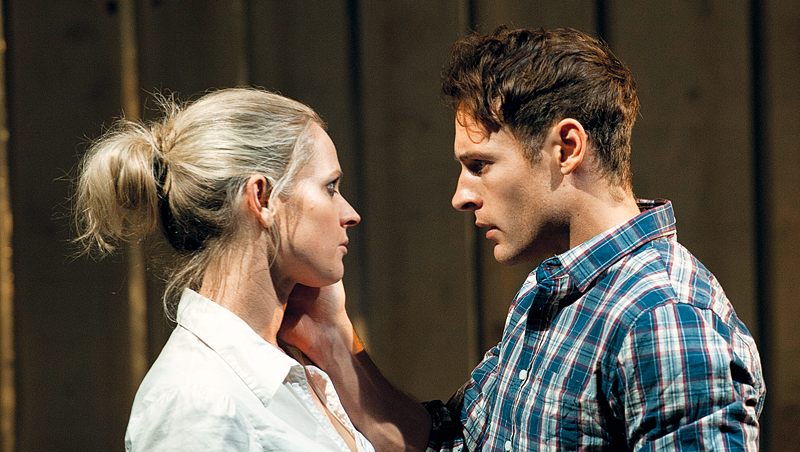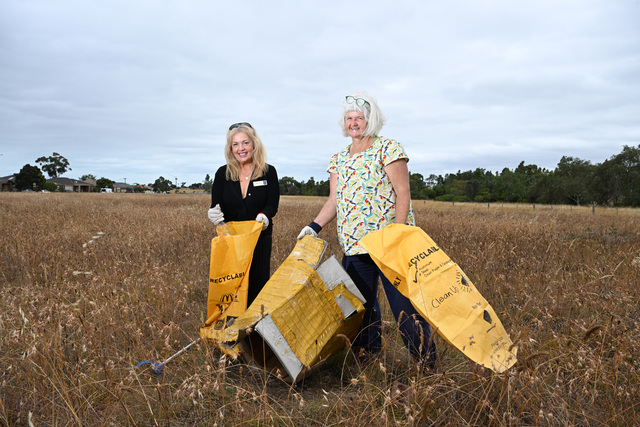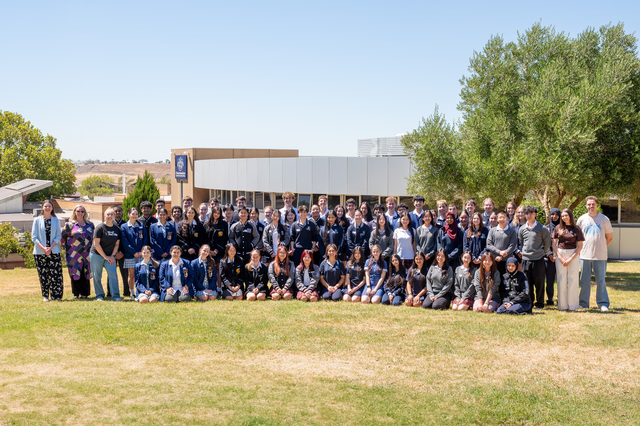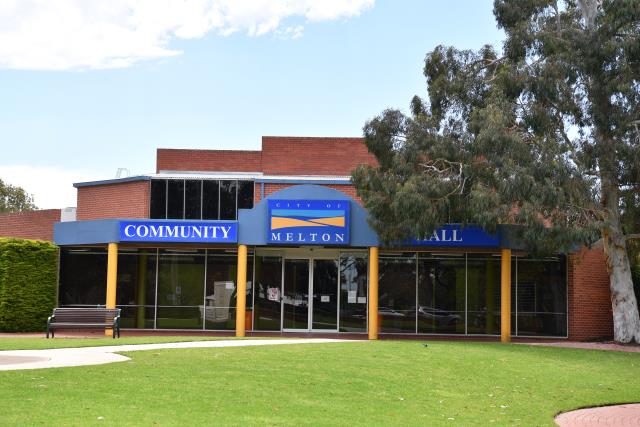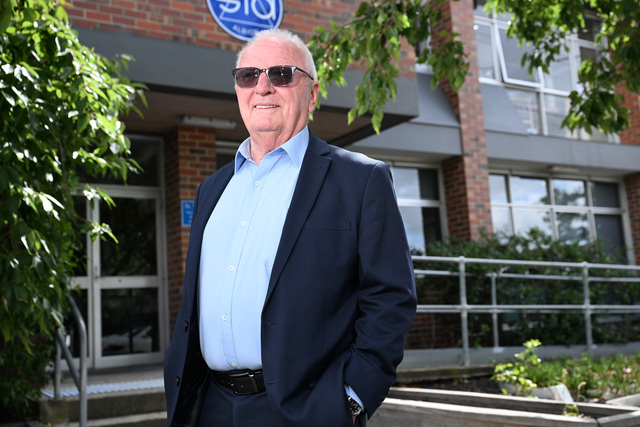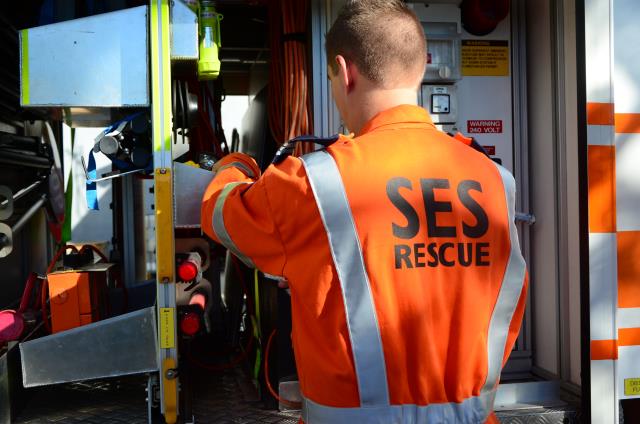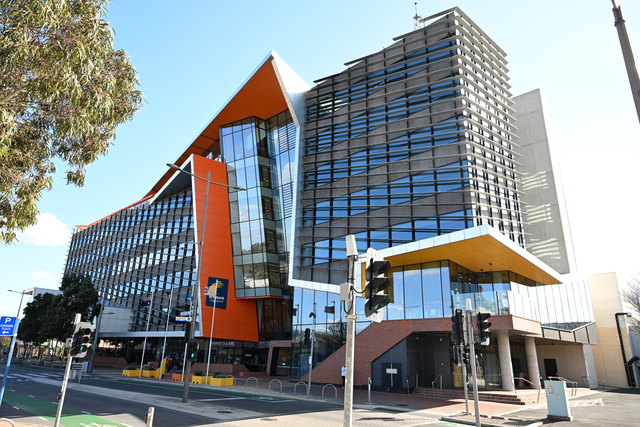“Desperately seeking six male singers for a Bayswater audition,” says SLAMS Music Theatre Company on a Melbourne website for amateur actors. Audition hopefuls who can showcase their vocal range are also required to choose a favourite movie quote “and perform it for us with as much cheesiness and gusto as you can muster.”
In Mount Waverley, middle-aged men and women are vying for a role in a Peridot Theatre Comedy set in the US state of Georgia. “It is necessary for all characters to have believable and consistent southern accents,” the audition brief states.
And rehearsals begin soon for Eltham Little Theatre as it prepares its cast of flappers, starlets and a “smarmy villain” for a “riotous adventure” in the play Peril on the High Seas in the rolling hills of Research.
By the time the curtain rises on non-professional shows across the suburbs, countless hours have been dedicated to auditions, rehearsals, set building and costume-making – and all of it voluntary.
Community theatre companies are increasingly lifting their standards in an effort to sell more seats and cover the production cost of mounting a musical or play on suburban stages.
Ticket sales will hopefully be enough to make a non-profit company break even, but it is often the aid of a local council arts grant or the favourable lease of a council-owned building that enables amateur actors to stay on stage and pursue their passion.
One of Victoria’s leading community theatre companies, CLOC Musical Theatre from Moorabbin, is celebrating 50 years of non-profit business next year, and local council Kingston has chipped in a $5000 grant to mark the occasion.
Some of the money will be used to employ an archivist to compile an anniversary book of CLOC’s achievements, says Sandra Davies, who serves as the company’s administrator and stage manager. She started backstage with CLOC more than 30 years ago, and teaches music at Beaumaris North Primary School.
“Kingston was also very helpful with refurbishing our rehearsal venue,” Davies says. “We put in $70,000 and we received $30,000 from the council as well. We worked very closely with the council and it was very cognisant of our needs.”
The once-decrepit Moorabbin Guide Hall is now CLOC’s HQ with modern fittings and a double garage for props, although the company’s shows have grown so large it leases St Kilda’s National Theatre to stage them.
“We’re a big company and we do full stage productions,” Davies says. “In May this year we did the world amateur premiere of The Phantom of the Opera … for this show 330 people were involved.”
“We did Sunset Boulevard last year and an agent came from Sydney and took photos to send to Andrew Lloyd Webber’s Really Useful Company. They were very impressed with the CLOC standard.”
CLOC’s Sunset Boulevard won two Music Theatre Guild of Victoria awards for non-professional theatre last year. Another of the company’s shows, All Shook Up, was the Guild’s production of the year in 2012.
Geelong Lyric Theatre Society, founded nearly 40 years ago, is one of more than 20 community theatre companies competing for a chunk of the City of Greater Geelong’s $220,000 annual arts grant, alongside hundreds of other arts organisations.
“We’ve not had any funding in recent years, unfortunately,” says society president Ben Crowley, whose company also staged The Phantom of the Opera this year (in an amateur première for Geelong).
“A few years back we were able to apply for some grants through the community grants program but unfortunately the City of Greater Geelong changed the criteria.”
The municipality’s Cr Michelle Heagney says grant guidelines state the council does not fund community groups’ “core business”, but she says the city does support the development of new theatrical work. “Not everyone wants to play football or cricket – theatre has a very important place in giving people a sense of community,” she says.
The Lyric Theatre Society pays a minimal rent for rehearsal space and storage at Geelong council’s renovated Belmont Pavilion. It was here the company rehearsed Hairspray before staging it at the 745-seat Playhouse Theatre at Geelong Performing Arts Centre.
Community theatres can also think outside their own suburban square to apply for grants to support their work. Hoy Polloy Theatre Productions associate director Ben Starick says his Brunswick-based company has never received arts funding from its local council, the City of Moreland. But by leasing a CBD theatre venue, Hoy Polloy was able to apply to the City of Melbourne’s arts grants program for funding to produce a play, Rhonda is in Therapy.
Starick says the $13,000 grant “was a really good kick-start” to paying the rent at Flinders Lane venue fortyfivedownstairs, where the play, by Melbourne writer Bridgette Burton, had a two-week run in September last year.
Successful 2014 arts grant recipients from the City of Melbourne’s $848,930 “investment in the arts” program include St Martins Youth Arts Centre, Snuff Puppets Inc and Arts Project Australia.
“Hoy Polloy is the longest-running independent company in Melbourne that had been unfunded, until last year,” Starick says. “In 1993 (director) Wayne Pearn set it up and basically he’s been putting his hand in his pocket for a long time.
“A lot of people do this for the love and for the passion. And a lot of people do try and apply for the money, which is extremely competitive to get. The tricky thing for us was the time required to go through and apply for the grants considering both Wayne and I have full-time jobs and we’re doing this for the love of it.”
In Melbourne’s north, Nillumbik Shire Council runs “effective grant-writing workshops”, which promise to “take the mystery out of grant application writing” for non-profit community groups seeking a slice of the council funding pie.
“Learn how to develop and define your project, understand the application form and write an effective grant application to maximise your organisation’s chance of success,” says the council’s website.
City of Port Phillip mayor Amanda Stevens says her council’s cultural development fund has assisted theatre companies and other local arts organisations from Port Melbourne to Elwood, with a budget of $135,000 distributed between 23 projects this financial year.
“Our grants’ programs are just one of the ways that council is supporting local individuals and organisations, and recognising the valuable work they do by helping to develop active, creative, healthy and well-connected communities,” she says.
“Our aim is to stimulate co-operation and collaboration between artists and organisations and there are several examples this year, including Theatre Works collaborating with Red Stitch.”
For the past 10 years the City of Stonnington has encouraged the growth of arts organisations within its community through its arts and cultural sponsorship program, says the council’s manager of economic and cultural development, Jan Jacklin. Applicants can apply for cash or in-kind support such as use of facilities at Chapel off Chapel or Malvern Town Hall.
Jacklin says applicants need to show the council the benefit of their proposal to the Stonnington community, “because at the end of the day, it’s ratepayers’ money”.
Many councils require successful grant applicants to complete an acquittal form to show how the money was spent and what audience reach they achieved. “You have to show receipts to verify your spending … it’s not a piece of cake to get a grant,” says Beaumaris Theatre president Janine Chugg.
Beaumaris Theatre had considerable success last year with its version of Noel Coward’s play Still Life, which won awards for first-time director Kristina Doucouliagos, 22, at four one-act play festivals in regional Victoria.
This year the company had a $5000 grant to help it install retractable raked seating in the 70-seat Stan Hawkins Hall, built in 1958. Owned by Bayside City Council, it was refurbished 10 years ago when Chugg took on the president’s role – in addition to her job as an occupational therapist.
Chugg notes the company, which celebrated 60 years of drama with a winter ball this year, has also paid a considerable sum to the council. “For many years (in the 1990s) we were paying $10,000 a year in rent and then they (Bayside) realised we are a not-for-profit group who should not be paying that much rent. Now it’s $110 a year as a token payment.”

